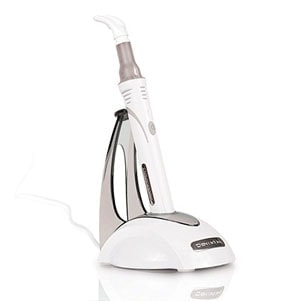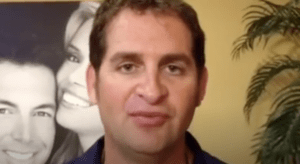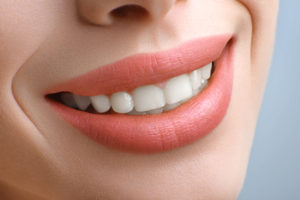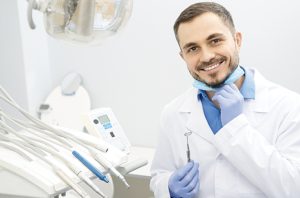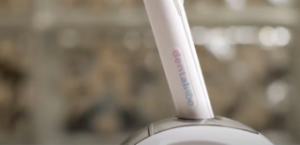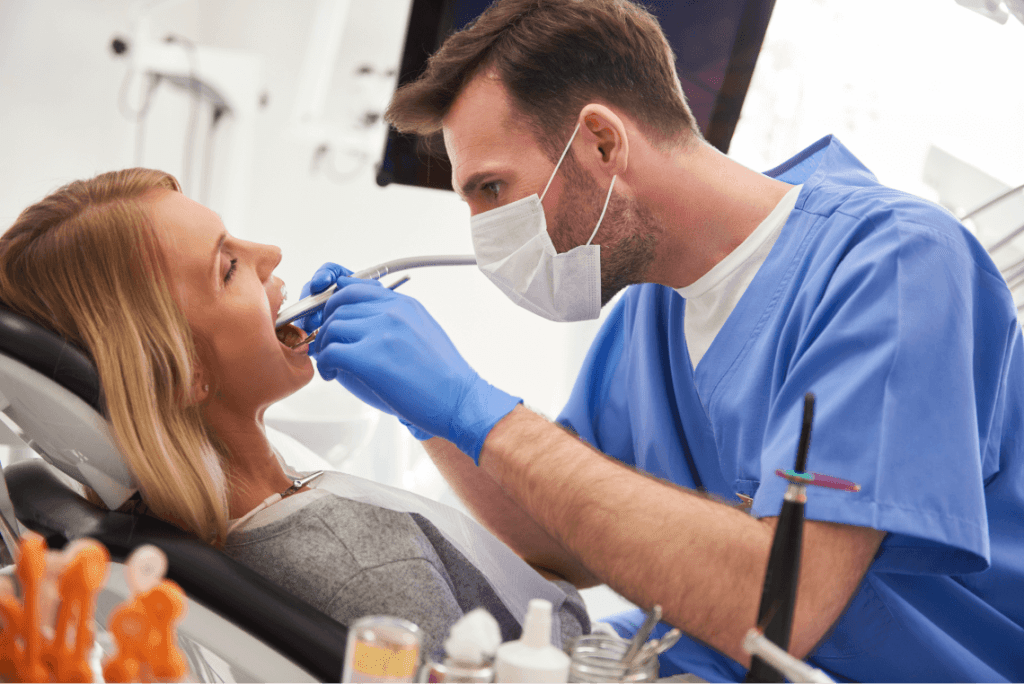Dry mouth, also called hyposalivation or xerostomia, occurs when the saliva glands aren’t working correctly. Along with being an uncomfortable feeling, a dry mouth can cause symptoms such as a parched throat, cracked lips, and difficulty chewing. Dry mouth also increases the risk of tooth decay, which can lead to bad breath, tooth loss, and other oral health problems.
Most importantly, a dry mouth could be a sign of another condition. Dry mouth in itself isn’t a diagnosis, but is a common symptom of several serious health concerns, so it’s not something you should ignore.
What is dry mouth a sign of?
You’ll likely need to speak to a doctor about additional symptoms to understand if your dry mouth is a result of another health condition. Most commonly, dry mouth is related to health conditions such as:
- Diabetes
- Kidney disease
- Mumps
- Anemia
- Depression
- Hypertension
- Anxiety disorder
- Autoimmune disorders
- Parkinson’s disease
- Sjogren’s syndrome
- HIV/AIDS
- Alzheimer’s disease
- Cystic fibrosis
- Rheumatoid arthritis
- Nutritional deficiencies
- Stroke
It’s important to note what your other symptoms are to find the root cause of your dry mouth. Do not assume that you have one of the above health conditions because you have this one symptom.
Dry mouth can also result from some lifestyle behaviors, such as smoking, chewing tobacco, mouth breathing, or not drinking enough liquids. It can also be a result of medical treatments, such as radiation and chemotherapy. Additionally, dry mouth can be a side effect of certain medications.
Lastly, dry mouth might be a result of poor oral care. If an individual doesn’t floss, brush their teeth, or visit the dentist regularly, it can cause a dry mouth. Over time, a dry mouth can lead to tooth decay. Saliva helps wash sugar out of the mouth and attacks the bacteria that causes tooth decay. Without enough saliva, you’re at a greater risk for oral health problems.
Is dry mouth a symptom of COVID?
To date, there has been no research looking into the connection between xerostomia and COVID-19. However, many patients who have COVID-19 are likely to experience anxiety and depression, both of which can cause a dry mouth.
Wearing a mask for an extended period of time can also lead to dry mouth, an effect known as “mask mouth.” If you’re wearing a mask to protect yourself against COVID-19, you may want to brush your teeth more often, and make sure you’re drinking plenty of water.
Does diabetes cause dry mouth?
According to the American Diabetes Association, dry mouth is a common symptom of type 1 and type 2 diabetes. The cause is generally thought to be:
- A side effect of diabetes medication
- High blood sugar levels
Can certain medications cause dry mouth?
Yes, certain medications can cause dry mouth. According to the Academy of General Dentistry, more than 90% of dry mouth cases are due to medications. Additionally, a 2016 study found that some of the most common medications to cause dry mouth are:
- Antihistamines
- Antihypertensives
- Hormone medications
- Decongestants
- Muscle relaxants
- Pain medications
- Bronchodilators
You can read the label of your medications to see if dry mouth is an expected side effect. Additionally, you can speak to your doctor about changing your prescription if dry mouth becomes a problem. Do not simply stop taking your medication, as this could put your health in danger. It’s essential to talk to your doctor and follow their instructions.
Which blood pressure meds cause dry mouth?
Hypertension (blood pressure) medications commonly state that dry mouth can be a side effect. If you’re concerned about the blood pressure medication you’re taking, read the list of potential side effects provided with the drug. If dry mouth isn’t listed as a possible side effect, your blood pressure medication might not be the root of the problem.
Why is my mouth dry after drinking water?
If your mouth is dry after drinking water, it’s a sign that dehydration isn’t what is causing your dry mouth. In this case, drinking water provides only temporary relief, and then your feelings of discomfort and dryness return. If this is happening to you, it could be time to visit a doctor to help identify the cause of your dry mouth.
How to prevent dry mouth while sleeping
If you tend to wake up with a dry mouth, try using a humidifier while you sleep, and leave it running all night long. A 2015 study found that a humidifier can effectively reduce the discomfort of dry mouth.
Other tips to help prevent dry mouth while sleeping include:
- Avoid alcohol, caffeine, tea, and other dehydrating items before bed
- Avoid spicy and acidic foods before bed
- Don’t eat right before bed
- Make sure you’re keeping up with proper oral hygiene habits, including brushing your teeth and flossing right before bed
- Drink plenty of water throughout the day
What can I do to treat dry mouth?
There are many possible avenues you can explore to treat a dry mouth:
- Start with making sure you’re drinking plenty of water throughout the day.
- Try to avoid dehydrating habits such as drinking caffeine or alcohol. You should also try to stop or limit your smoking and reduce your sugar intake. Too much tea can be dehydrating also, but green tea may help improve your oral health by fighting bacteria. If you do drink tea, make sure to drink water also to counter any dehydrating effects.
- Brush with a fluoride toothpaste, use an alcohol-free mouthwash, and visit your dentist regularly. If you don’t already do so, make sure you brush at least twice a day and floss at least once.
- Talk to your doctor about switching your brand of medication if you think that is causing your dry mouth.
- Consider chewing or sucking on sugar-free candies that contain xylitol. Xylitol is a common, natural ingredient in many sugar-free items and helps stimulate saliva production.
- If a dry mouth isn’t your only symptom, visit your doctor for an examination and diagnosis. If you have other health conditions, treating the underlying condition will likely resolve the dry mouth. If dry mouth is your only symptom and the above suggestions don’t improve things, your doctor might be able to prescribe medication to help ease your dry mouth.
What can I take for dry mouth?
Some experts recommend sucking on sugar-free candies that contain xylitol to stimulate saliva production. Some herbal remedies — including ginger, aloe vera, and marshmallow root — call all help increase the moisture in your mouth when ingested.
If that doesn’t seem to help, there are over-the-counter saliva substitutes you can purchase. One popular brand is called Xerostom.
When is it time to visit the dentist?
Dry mouth is closely linked to your oral hygiene. If you’re suffering from a dry mouth, consider visiting the dentist. You want to catch any signs of tooth decay or other oral health issues early on so your dentist can address them before they become worse. Find a certified pain-free dentist near you today.

